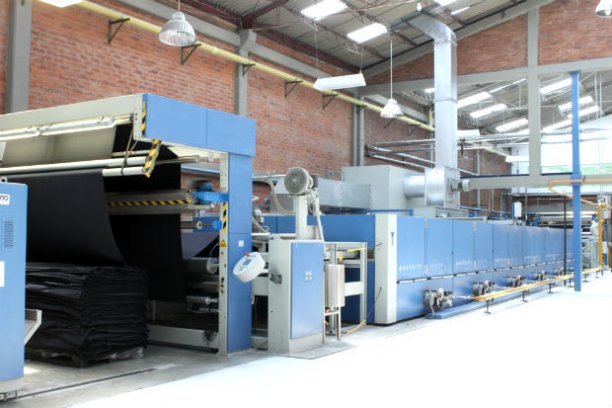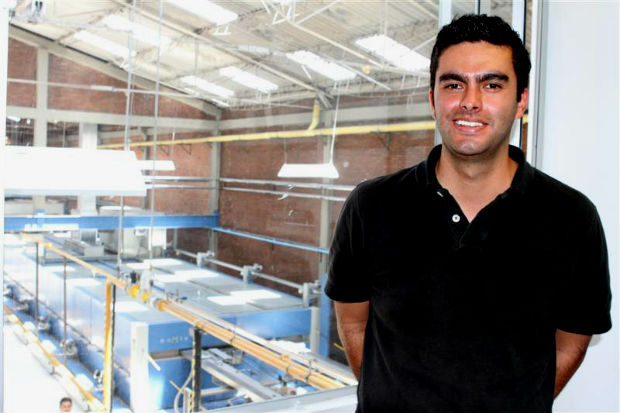
Quality finishing assured for polyester warp knits with Monforts Montex 6500
Permoda, Colombia based garment producer, combats cheap imports by investing in a Montex 6500 stenter to control costs, by increasing competitiveness in the quality of its own-brand products. "This is a completely new addition to our production line," commented Permoda's Maintenance Director William Garzon Alarcon. "The plant was opened just seven years ago, and until now we have been using conventional stretching frames for our fabrics. Permoda manufactures for the Latin American markets, with brand names such as Armi, Pronto, B-Kul, Koaj and Love catering mainly for the young fashion sectors.

13th September 2013
Knitting Industry
|
Bogotá
Permoda, Colombia based garment producer, combats cheap imports by investing in a Montex 6500 stenter to control costs, by increasing competitiveness in the quality of its own-brand products.
"This is a completely new addition to our production line," commented Permoda's Maintenance Director William Garzon Alarcon. "The plant was opened just seven years ago, and until now we have been using conventional stretching frames for our fabrics.
Permoda manufactures for the Latin American markets, with brand names such as Armi, Pronto, B-Kul, Koaj and Love catering mainly for the young fashion sectors.
"It is our strategy now to improve the quality of our output to become more competitive, and also to increase our production. In that order. We believe that quality drives sales and hence production, in our market sectors certainly, and this is why we have installed the Montex. The Monforts technology enables us to do both," said Garzon.
The new stenter is handling a wide range of knitted fabrics including 100% cotton, combined polyester and cotton, and Lycra. "We can now process any kind of knitted fabric here, and the stenter is helping us to increase our fabrics mix," explained Garzon.

According to the company, the monthly output of production will now amount to more than 125 tonnes, which is considerably more than the previous line could provide. This is expected to also widen the range of fashion garments produced by Permoda.
The drive towards better quality in materials, design and production has been particularly acute in Colombia in recent times, according to Permoda, because of a flood of cheaper imports from Asia, a substantial part of the volume being contraband or brand copyright infringements that often sell at a fraction of the price of comparable Colombian goods.
"We also have to be very much aware of our costs, which of course are reflected in our retail prices," commented Garzon. "We cannot beat cheap imports, and we don't intend to even try, but we have to be competitive as well as being better."
The energy efficiency of the Montex, which is fitted with a heat exchanger, is also expected to help the company to control the costs. Energy can account for more than half the costs of operating a thermal system, and the Monforts heat transfer system is designed to reduce these to the minimum amount possible.
The heat exchanger is integrated into the roof construction of the stenter and uses exhaust air heat to heat the fresh combustion air. Heated fresh air enters at the inlets of the stenter via integrated fresh air ducts.
Up to 60% of the fresh air required by the stenter can be preheated in this way, providing a conservatively estimated energy saving of between 10% and 30%, depending on the production process.

Business intelligence for the fibre, textiles and apparel industries: technologies, innovations, markets, investments, trade policy, sourcing, strategy...
Find out more